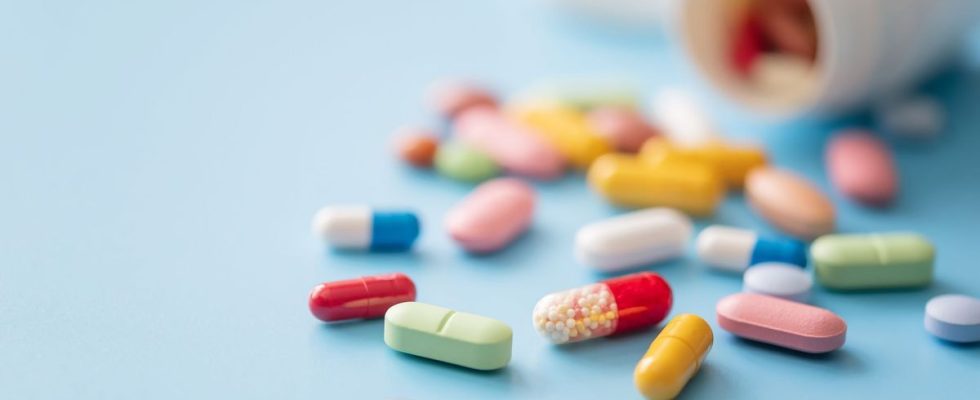Published on
Updated
Reading 3 min.
Save time and money. The pharmaceutical industry is also moving towards artificial intelligence (AI) with a proliferation of start-ups and biotechs whose projects promise to revolutionize the place and role of chemists.
Objective: halve the time to discover a drug candidate
“In five years, all small molecules will have been found with generative AI methods“, estimates Yann Gaston-Mathé, boss of the start-up Iktos.
Created in 2016, the start-up which employs around 60 people is located in the Paris region. It uses AI to design cancer drugs.
Iktos displays its “ambition to halve the discovery time of a pre-clinical drug candidate“, which has not been tested in humans, says Quentin Perron, its head of strategy.
Time, a strategic issue for the pharmaceutical industry. “It takes twice as long to develop a drug as to build an airplane“, describes a senior executive in the French pharmaceutical industry.
To hope to develop a drug, it is first necessary to identify the chemical compounds which have the characteristics capable of achieving a desired therapeutic effect.
“This amounts to seeking the solution in an almost infinite chemical space since we consider that the number of molecules that we can imagine synthesizing is of the order of 10 to the power of 60, or roughly the number of atoms in the universe.“, illustrates Yann Gaston-Mathé.
Several biotechs are already attracting big pharma
The drug discovery stage precedes the clinical development phase during which the drug candidate is tested in humans.
It aims to identify potential promising drugs that could be further developed. This phase takes up to 5 years and requires an average investment of nearly $100 million per drug candidate. Traditionally, the chemist imagines the molecule and tests it in the laboratory.
The emergence of AI promises to sweep away all its stages. Although there are currently no statistics to compare medicinal chemistry projects using traditional methods to those carried out using generative AI, the big names in the pharmaceutical industry have all established collaborations with biotechs and start-ups which have made AI the heart of their model.
Among the most recognized, the British biotech Excensitia, the American companies Schödinger and Atomwise, Insilico Medicine based in Hong Kong, BenevolentAI listed in Amsterdam.
Sanofi has just signed a partnership with the French start-up Aqemia in the search for drugs using AI.
What happens to the chemist?
Iktos hopes to soon enter the big leagues as well. At the heart of its strategy, AI solutions integrated into a robot.
The first acts like a brain that feeds on biological data to imagine the molecule that “ticks all the boxes”: be effective at the lowest possible dose, safe, stable, patentable and synthesizable… “It takes a few hours“, specifies Quentin Perron.
Then another AI intervenes, which in “a few seconds”, “can give the recipe” to “go to real powders” by drawing inspiration from publications of millions of chemical reactions and patent data.
Then it’s the robot’s turn to transform into a production tool, capable of synthesizing 96 molecules at a time. The collected filtrates are purified in partners before being tested in vitro or on mice.
The process can be repeated over and over again to find even more promising compounds.
It is still small-scale work but “equivalent to around thirty chemists in the laboratory”, underlines Mr. Perron, assessing that this first phase of development “takes between 1 and 2 months to make 100 molecules in parallel” in the robot while it takes “between two and three months” in a traditional laboratory.
A time saving which allows the chemist “to concentrate on value-added tasks, read specialist literature, look at what the competition is doing instead of cleaning the bench, sweeping the laboratory or looking for where to get the product“, estimates the expert.
However, we will have to wait a little longer to see the emergence of drugs resulting from AI, knowing that it takes, according to the union of pharmaceutical companies (Leem), more than ten years to develop a drug and that out of 10 candidates- drugs, only one succeeds in being marketed.
